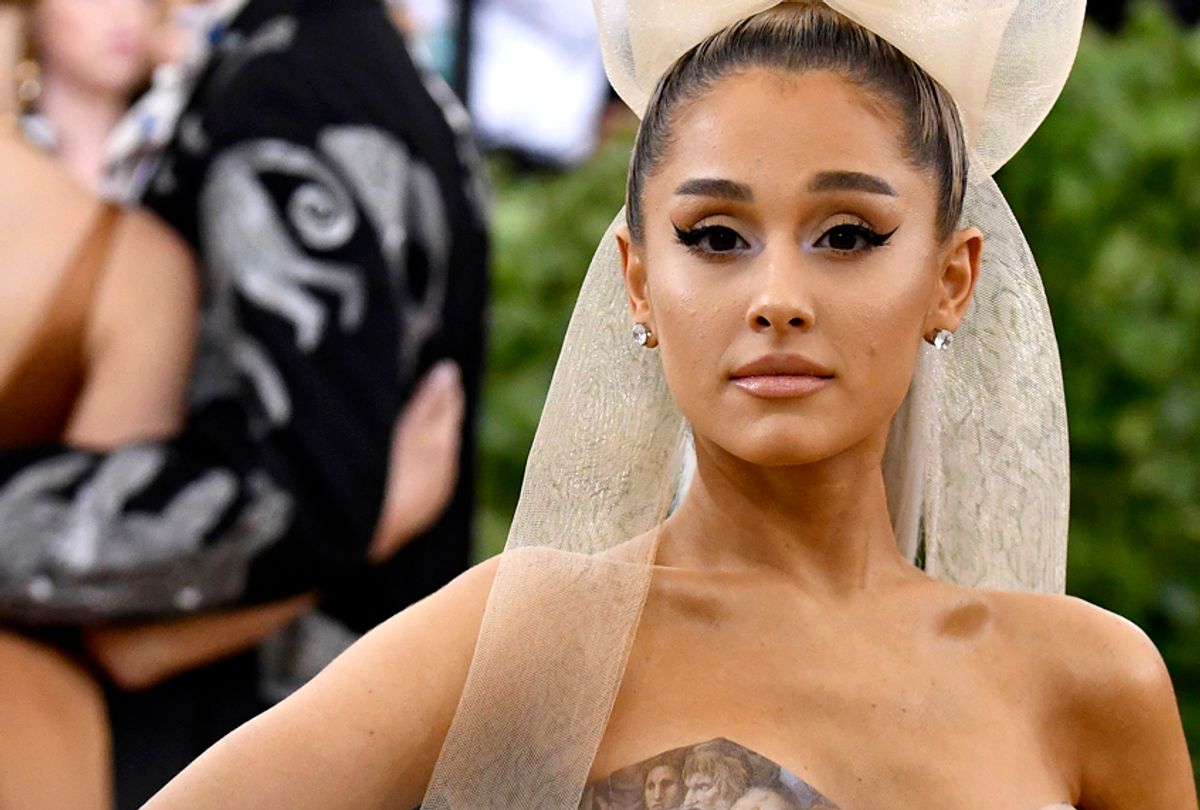Mac Miller and Ariana Grande‘s relationship fell unusually under the tabloid radar for the majority of their two-year run. It was their breakup in May that finally captured public attention, especially since it was followed eight days later by Miller crashing his car while intoxicated and, just weeks after that, Grande getting engaged to "SNL" star Pete Davidson.
“It’s the most heartbreaking thing happening in Hollywood,” wrote Twitter user Elijah Flint back in May. Flint, like many presumed fans of Miller (as well as casual tabloid followers), didn’t find the heartbreak in Miller’s continuous battle with substance abuse — a battle he explored in his music and spoke openly about for years — but rather in the fact that a woman like Grande could, according to Flint, callously transform from being one man’s muse to finding love with someone else.
Flint’s tweet wasn’t the only comment like that at the time, but it was the only one Grande responded to. In a lengthy Notes app screed, the singer, 25, laid out how terrifying it is to be a partner to someone battling addiction. She never described Miller in any way other than as someone she loved and cared for deeply who had a disease she couldn’t control.
Read more Rolling Stone: Mac Miller Dead at 26
“How absurd that you minimize female self-respect and self-worth by saying someone should stay in a toxic relationship because he wrote an album about them,” she wrote, noting that only one song on Miller’s "Divine Feminine" was explicitly about her. “I am not a babysitter or a mother and no woman should feel that they need to be.”
When Miller tragically died of a suspected overdose on Friday, Grande’s name was immediately trending on Twitter. Not only did many dilute his legacy to be that of a once-boyfriend to a popular singer, but others decided to once again place the blame on Grande. Her Instagram comments and Twitter mentions immediately became filled with gendered slurs, libelous claims that she murdered him and expletive-laden exclamations of grief-fueled hurt and finger-pointing. Even the wording of TMZ’s article — where news of Miller’s death first broke — implied that their break-up was a key reason for Miller’s further spiral into addiction this year. She disabled the comments on her Instagram soon after and has since only returned to the app to post a sweet photo of Millerwith what appear to be her own sneakers peeking out from the bottom of the frame, indicating it was an image she had taken herself from their time together.
Grande is not the first woman to carry the weight of a romantic partner’s demons on her shoulder. Especially where fame and fandom are involved, the gossipy headlines about betrayal and heartbreak seem like a more tangible cause for tragedy than the reality that no matter how much support they have, even the strongest of our heroes can lose the battles they fight. And because, in this case, Grande had very publicly moved on to meet the man she has called her “soul mate,” her outward happiness was enough proof for the most misogynistic of commenters that Miller’s downfall was her fault.
Read more Rolling Stone: 10 Essential Mac Miller Songs
Fan claims such as these stem from the most dangerous branch of pop culture’s continuous fascination with the so-called “Yoko Effect” and its desire to connect female partners to actions they may not comprehend. These claims and conspiracies — often solely perpetuated by the most toxically masculine factions of fandoms — sometimes never disappear. Even Courtney Love is still fielding social media comments and blog conspiracy theories that she not only was the reason Kurt Cobain became addicted to heroin (she was not) but also that she had actually murdered him and faked his suicide (also untrue). Cobain died two decades before these social media platforms even existed, yet the fact that Love’s comments can still attract a rogue claim like this speaks volumes to the way society continues to expect women to be caretakers for the men in their lives and reacts with fury when they apparently cannot absorb their partners’ pain.
Meanwhile, many fans of both Miller and Grande — as well as those who have born witness to the nasty comments hurled at her — have come to her defense. Even Flint, the Twitter user who previously connected the couple’s break-up to Miller’s car accident, has had a change of heart.
“I’m only going to say this once, this isn’t Ariana’s fault and if anything it unfortunately proves the very real nature of the things she tweeted me about,” he wrote.
“It’s all positive energy,” Miller said previously in a Beats 1 interview about Grande’s engagement, prior to releasing "Swimming," his final album. His comments mirrored what Grande had continued to say in her note about their breakup. She had always prayed for his sobriety and cared for him deeply, and given the many years they had known each other, it’s hard to suspect that those claims are anything but true.
Read more Rolling Stone: How Sia Saved Herself
“I am happy for her in moving forward with her life,” he continued, “just as I’m sure she is with me.”




Shares